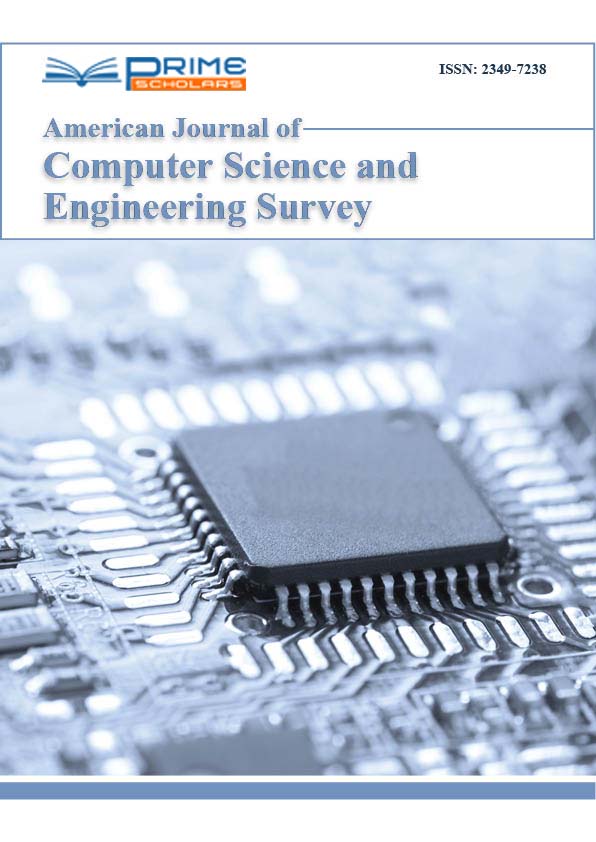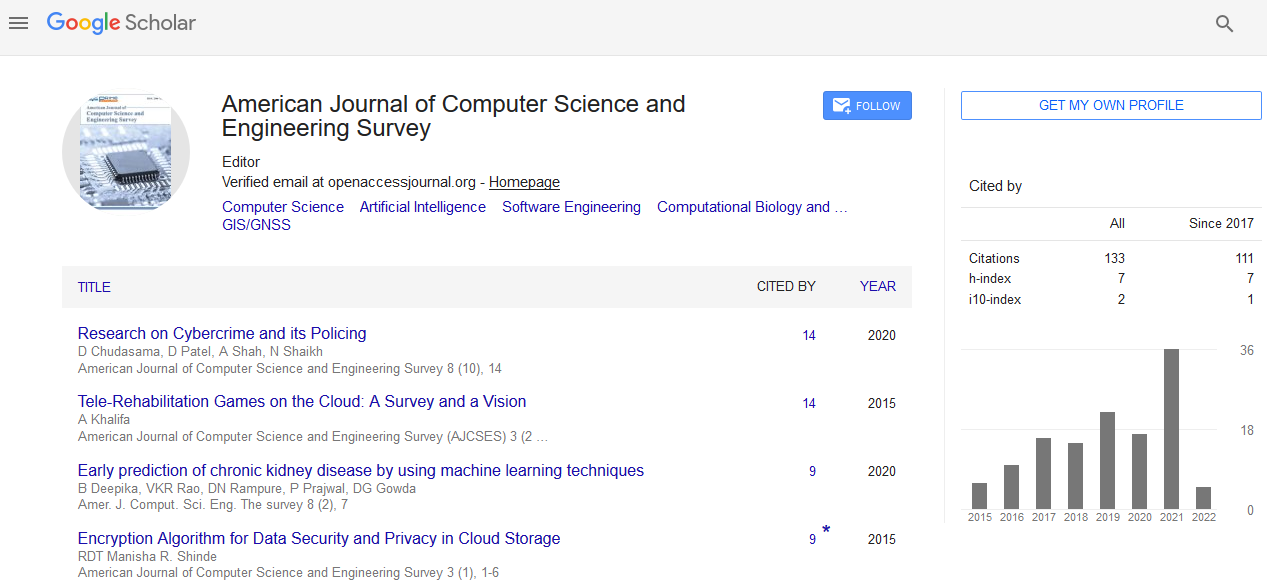Commentary - (2023) Volume 11, Issue 1
Factors Add to the Worldwide Extension of M- Commerce
Benjamin Thomas*
Department of Computer Science, Michigan State University, USA
*Correspondence:
Benjamin Thomas,
Department of Computer Science, Michigan State University,
USA,
Email:
Received: 01-Mar-2023, Manuscript No. ipacses-23-16463;
Editor assigned: 03-Mar-2023, Pre QC No. ipacses-23-16463 (PQ);
Reviewed: 17-Mar-2023, QC No. ipacses-23-16463;
Revised: 22-Mar-2023, Manuscript No. ipacses-23-16463 (R);
Published:
29-Mar-2023, DOI: 10.36846/2349-7238.23.11.08
Description
The goal of this study is to analyse the factors contributing to
the phenomenal growth of the m-business sector. The article
examines 8 variables, including financial and macroeconomic
ones that are thought to have an effect on the growth of global
m-trade. A board of data covering the years 2011 through 2020
was examined using the summarised technique for minutes,
using an example of 42 developed and developing countries.
The precise findings demonstrate that m-business is significantly
impacted by salaries, GDP, shopper confidence records,
card installment exchanges, mobile clients, Web access, and
Web use selling labour and goods, while the mobile Web entry
rate has a negative impact. This investigation advances the cutting-
edge research on financial and macroeconomic indicators
using a huge and delegate board informative collection edge in
the comprehension of these ideas by the client. The review’s
deft utilisation of m-business drivers to ignite experimental research
is its brilliant dedication. Specific arrangement recommendations
are made, with a focus on practical, doable steps
to improve the m-business sector. The internet is now routinely
seen as a valuable resource in every aspect of life. It has resulted
in the creation of new positions with valued open doors and
significantly influences the general business environment. This
enables customers to save money and time so they can engage
in other appealing activities. E-commerce, which is the process
of performing business transactions and exchanges of goods,
services, or information through the use of the Internet, is one
of the numerous increasing industries that the Internet has
promoted especially notable among digital technologies is the
Internet. Low operating costs, the removal of middlemen, and
the diminution of physical barriers all sped up the internalisation
of e-commerce. E-commerce has therefore improved the
competitiveness of developing nations, decreased poverty, and
increased GDP per capita. By facilitating access to information,
know-how, and knowledge, boosting competition and market penetration, enhancing management effectiveness, fostering
learning, raising labour productivity, and assisting in the eradication
of poverty, e-commerce has assisted social and economic
development. The performance of online retailers has
improved thanks to the sector’s rapid growth and the ability for
enterprises to make substantial amounts of income. In emerging
economies as opposed to industrialised ones, there is a
higher opportunity for e-commerce to create value. Additionally,
the growth of e-sales activities has a favourable effect on the
rise of labour productivity, with smaller businesses benefiting
from e-commerce the most. The fact that e-commerce activities
have not led to a decline in employment is significant. The
manner that businesses are run has changed dramatically since
the advent of e-commerce in recent decades. To succeed in the
modern information era, businesses must embrace e-commerce;
otherwise, they run the danger of slipping behind rivals
who have already done so. Due to the accessibility of online
shopping and technological advancements that have increased
productivity and performance, many businesses that only conduct
business online have emerged, forcing traditional retailers
to integrate their online sales networks with their physical
ones. In addition to all the advantages and beneficial results
that can be attained via online shopping, technological, managerial,
and environmental elements have a direct impact on
how e-commerce is implemented. The most significant factor
of e-commerce adoption is perceived managerial e-willingness,
while perceived environmental e-willingness and government
investment in infrastructure development also play significant
roles in e-commerce institutionalisation.
Acknowledgement
None.
Conflict of Interest
The author has declared no conflict of interest.
Citation: Thomas B (2023) Factors Add to the Worldwide Extension of M-Commerce. Am J Comp Science. 11:08.
Copyright: © 2023 Thomas B. This is an open-access article distributed under the terms of the Creative Commons Attribution
License, which permits unrestricted use, distribution, and reproduction in any medium, provided the original author and source
are credited.

